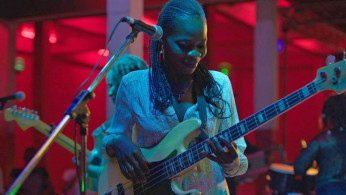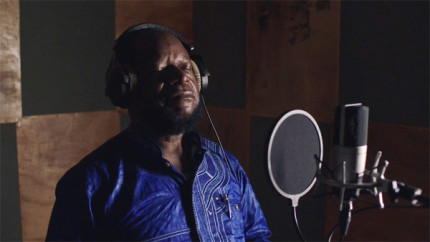
Vincent Meessen, One.Two.Three, three-channel digital video installation (looped), surround sound, 2015. Film still. Courtesy of the artist and Normal, Brussels

Vincent Meessen, One.Two.Three (2016)

Vincent Meessen, One.Two.Three, three-channel digital video installation (looped), surround sound, 2015. Film still. Courtesy of the artist and Normal, Brussels

Vincent Meessen, One.Two.Three (2016)